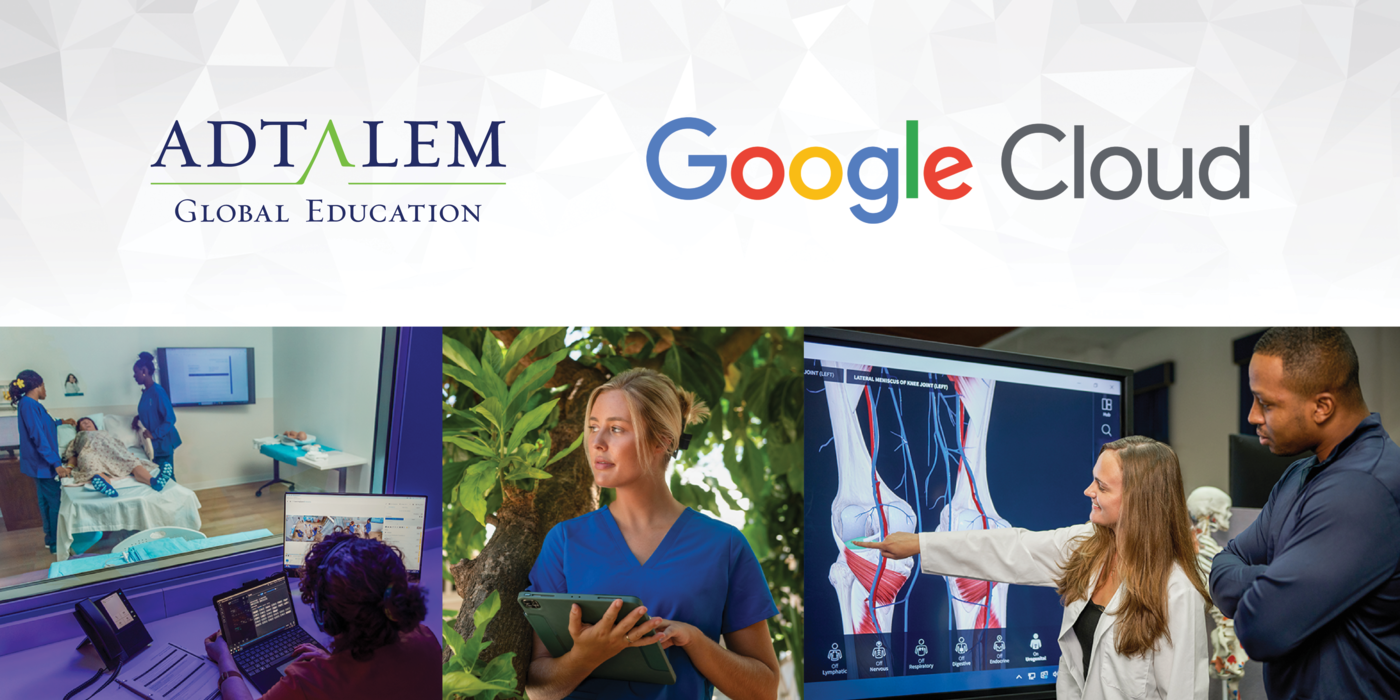Patient-centered care is a fundamental principle that prioritizes the needs, preferences and values of patients. Here’s how Adtalem leads the way from classroom to care.
In the ever-evolving world of healthcare, patient-centered care ensures that individuals receive not only the best clinical care but also a compassionate, respectful experience throughout their healthcare journey.
It’s an approach that shifts the focus of healthcare from simply treating a disease to addressing the whole person—recognizing patients as active partners in their care, involving them in decisions, tailoring treatment to their individual needs and preferences and understanding the unique cultural, emotional and social factors that influence a patient’s health.
Patient Advocacy Starts in the Classroom
Adtalem Global Education and its institutions—American University of the Caribbean School of Medicine, Chamberlain University, Ross University School of Medicine, Ross University School of Veterinary Medicine and Walden University—are preparing the next generation of healthcare professionals to be advocates, communicators and compassionate caregivers who place patients at the heart of every decision.
The principles of patient-centered care are embraced not just in theory, but through educational practices and innovation that prepare students to excel in a healthcare environment that increasingly values empathy, communication and collaboration.
“Patient-centered care is essential not only in practice but also in education,” says Dr. Karen Cox, president of Chamberlain University.
Chamberlain has made patient-centered care the foundation of its curriculum through Chamberlain Care®, a philosophy that is built upon the belief that taking extraordinary care of students leads to extraordinary care of patients, clients, families and communities.
“Patient-centered care isn’t just a transaction but rather a relationship. This is crucial for our students because it shapes them into compassionate, well-rounded healthcare professionals who can make a real difference. Throughout our students’ academic journeys, they are supported by faculty who nurture their potential while teaching them the skills, competencies and knowledge they need to bring a comprehensive, compassionate, patient-centric approach to care for their patients and their families,” Dr. Cox says.
On the Front Lines of Patient Care
At Walden University, patient-centered care is embedded throughout the nursing programs, with a strong focus on patient advocacy. Walden’s College of Nursing offers a course called Patient Advocacy: Empowering Nurses as Agents of Patient-Centered Care, equipping students with the tools and knowledge to champion their patients’ rights and needs and understand the importance of advocating for patients' individual preferences, whether in clinical settings or in broader healthcare policy discussions.
Latonya Dickerson Hughes, PhD ’19, is a Walden alumna who dedicated her doctoral research to patient-centered care—The Nurse and Certified Nursing Assistant Perception of Person-Centered Care. She is now associate dean of the College of Nursing.
Innovation Will Revolutionize Patient Advocacy
As healthcare innovates its reliance on new technology, opportunities are created to enhance patient-centered care. Technologies like telemedicine, electronic health records and AI-powered diagnostic tools allow healthcare providers to deliver more personalized care, monitor patient health remotely and improve clinical outcomes through faster and more accurate decision-making.
“Digital technology, when used thoughtfully, has the power to change patient care,” says Dr. Rhonda McIntyre, RUSM's senior associate dean. RUSM integrates technological advancements in patient care into their curriculum to expose students to their capabilities early on.
Dr. Mark Rosenberg, AUC’s dean, shared:
For more information, email the Adtalem Global Communications Team: adtalemmedia@adtalem.com.








